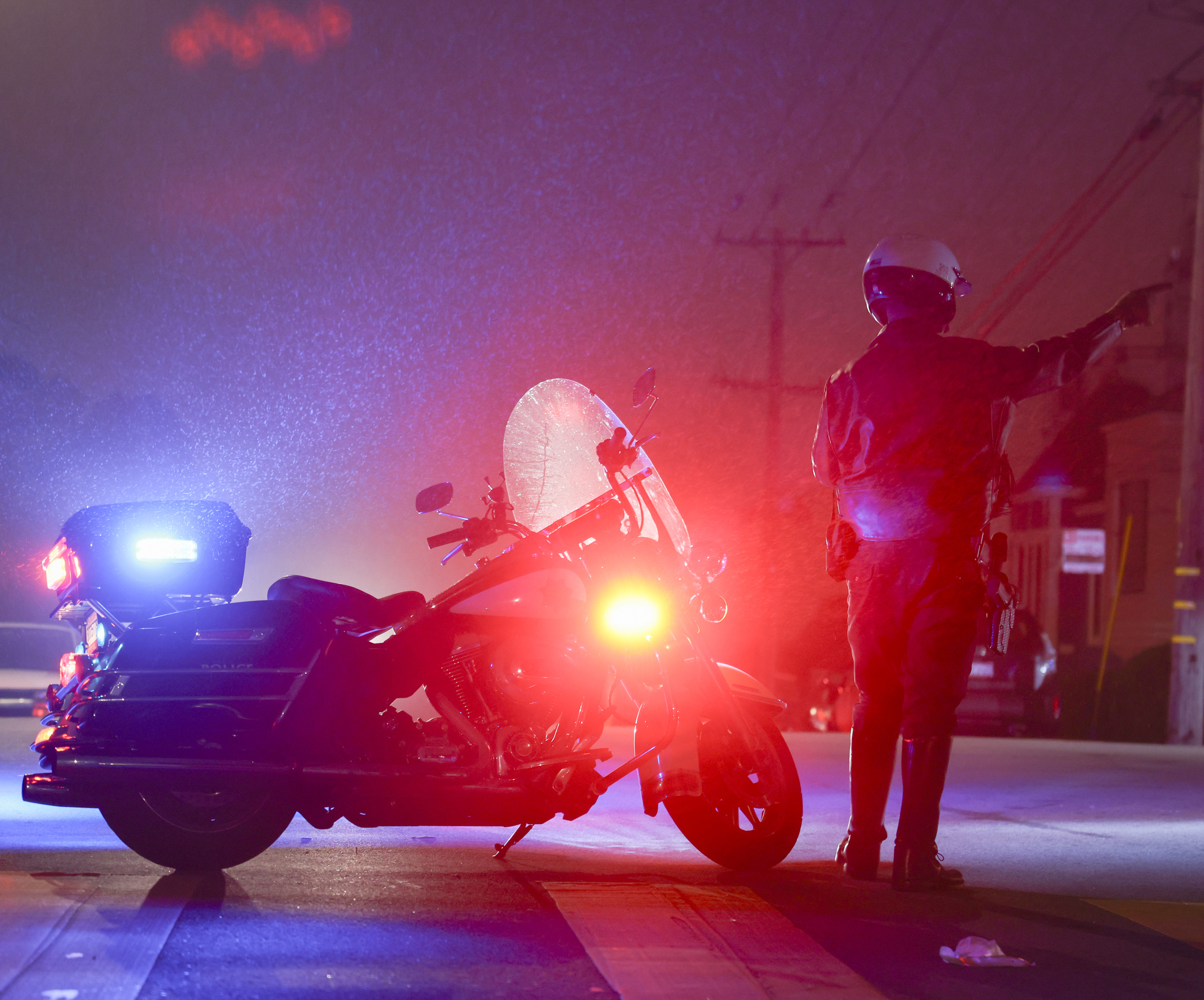Despite legal action by the union representing San Francisco cops, as of Wednesday officers are no longer allowed to pull over motorists for low-level offenses based on a hunch that they have committed more serious crimes.
The controversial practice, known as pretext stops, was banned in a split vote in February by the San Francisco Police Commission weeks before voters passed Proposition E, which reduced the body’s policy-making powers.
“Decades of data show that pretext stops have been an unmitigated failure,” said Commissioner Max Carter-Oberstone. “This policy will allow us to redirect our resources to strategies that actually stop and prevent crime.”
Data from the the Racial and Identity Profiling Advisory Board show that San Francisco police pull over a disproportionate number of Black and brown drivers.
The policy bars officers from pulling people over for a small subset of vehicle code violations, such as failing to signal properly or driving with long-expired registration tags. Still, the new rule leaves room for officers to enforce these offenses, such as when a vehicle is parked or when the offense is not the only reason for pulling someone over.
“The goal of this General Order is to curtail the practice of stopping vehicles for low-level traffic offenses as a pretext to investigate hunches that do not amount to reasonable suspicion that a crime occurred,” the order reads. “Pretext stops are disproportionately carried out against people of color and return negligible public safety benefits. The fiscal, human, and societal costs they impose on our City are unjustified in light of more effective public safety tools at the Department’s disposal.”
A guidance video for officers was released along with the new department general order in May. The department will issue a quarterly report to the Police Commission on its stop data.
The practice has been defended by the San Francisco Police Officers Association, which argued that many small offenses, such as a broken taillight, have led officers to seizures of drugs and guns.
The union on July 5 tweeted an image of a cache of weapons it said officers obtained via a pretext stop.
“Tenderloin Violence Reduction Team seizes a small armory through PRETEXT STOP,” the association wrote. “Handguns, rifles & assault rifles, ballistic vests & more are all off our streets thanks to alert officers lawfully doing their jobs.”
The union added a dig at the new policy in its tweet. “Once the Police Commission’s car stop policy is implemented, all that firepower stays in your neighborhood, guaranteed safe passage by a policy meant to make the PC look good rather than to do good.”
The Police Officers Association has fought against the rule to ban pretext stops since February, when it first declared an impasse in labor negotiations and followed up with legal action.
One of the groups celebrating the new policy, the SF Coalition to End Biased Stops, has released a guide for citizens, which lays out their rights during traffic stops.
